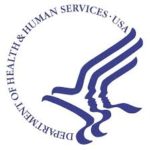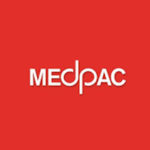The following is the latest health policy news from the federal government for July 21 -28. Some of the language used below is taken directly from government documents.
Medicare Payment Regulations
- CMS has published a final rule to update Medicare payment policies and rates under its inpatient rehabilitation facility (IRF) prospective payment system and IRF quality reporting program for FY 2024. The final rule includes a 3.4 percent rate increase and changes in the outlier threshold, the case-mix-group relative weights and average length of stay values, and the wage index. In addition, this rule rebases and revises the IRF market basket and modifies regulations to permit hospitals to open and begin billing Medicare for an excluded IRF unit anytime within the cost reporting year. Learn more from this CMS fact sheet and from this preview version of the final rule.
- CMS has published a final rule to update Medicare payment policies and rates under its inpatient psychiatric facility prospective payment system for FY 2024. The final rule calls for a rate increase of 3.3 percent. In addition, the rule finalizes CMS’s proposals to rebase and revise the inpatient psychiatric facility market basket; modifies regulations to permit hospitals to open and begin billing Medicare for an excluded inpatient psychiatric facility unit anytime within the cost reporting year; finalizes four new measures, modifies one current measure, removes two current measures, and adopts and implements a data validation pilot for the inpatient psychiatric quality reporting program; and includes a summary of the request for information that was included in the proposed rule to inform future revisions of the inpatient psychiatric facility prospective payment system. Learn more from this CMS fact sheet and this preview version of the final rule.
 Department of Health and Human Services
Department of Health and Human Services
- HHS has proposed new regulations that would require health insurers to improve access to in-network mental health services for their members. The newly proposed regulations seek to strengthen the 2008 Mental Health Parity and Addiction Equity Act by requiring health care payers to analyze their members’ access to mental health services by looking at their medical management processes, the adequacy of their provider networks, and the rates they pay those providers. This, HHS maintains, should help ensure that insured individuals’ access to such services is as good as their access to physical health care services by leading to improvements in insurers’ mental health provider networks. Insurers also would be required to analyze the outcomes of such care to ensure that the resulting changes in insurer practices also are leading to equitable access to quality mental health services. Learn more about how the administration proposes strengthening the 2008 Mental Health Parity and Addiction Equity Act from the following resources:
- an HHS news release
- a preview version of the proposed rule
- a White House fact sheet
- a new report on the Mental Health Parity and Addiction Equity Act submitted to Congress by HHS, the Department of Labor, and the Treasury Department
- a joint fact sheet on the Mental Health Parity and Addiction Equity Act enforcement by the Department of Labor’s Employee Benefits Security Administration and CMS
- HHS’s Office for Civil Rights (OCR) and the Federal Trade Commission (FTC) have written to 130 health systems and telehealth providers about online tracking technologies and to warn them about serious privacy and security risks related to the use of online tracking technologies that may be present on their websites or mobile applications and impermissibly disclosing consumers’ sensitive personal health information to third parties. The agencies did not identify the letters’ recipients. Learn more from the joint HHS/FTC letter.
- As required by past executive order, HHS has published an inventory of rulemaking actions under development throughout the department. Published semi-annually, the agenda presents the regulatory activities the department expects to undertake in the foreseeable future. Find the agenda and an explanation of its purpose from this HHS announcement, which includes a link to a Federal Register notice.
- HHS’s Substance Abuse and Mental Health Services Administration (SAMHSA) has published a draft “Harm Reduction Framework” that the agency describes as “…the first document to comprehensively outline harm reduction and its role within the Department of Health and Human Services (HHS). The Framework will inform SAMHSA’s harm reduction activities moving forward, as well as related policies, programs, and practices.” Find an introduction to the framework and its purpose here and the complete document here. Stakeholder comments are due by August 14.
- HHS and its Health Resources and Services Administration (HRSA) have awarded nearly $11 million to 15 recipients to strengthen the health workforce by establishing new residency programs in rural communities. Learn more about the purpose of the funding and find a link to a list of the grant recipients from this HHS news release.
HHS Newsletters

- CMS has contracted with an external vendor to develop and maintain its hospital quality star ratings methodology. That vendor is convening a group of stakeholders and experts to contribute direction and input to its work and analysis and is seeking volunteers to serve on this advisory committee. The vendor seeks seeking individuals with differing perspectives and areas of expertise, such as hospital quality measurement and hospital performance improvement; quality measure development; statistical modeling and empirical methods; consumer testing; other star rating systems; health care disparities; purchaser perspectives; and/or patient, family, caregiver, or patient advocate perspectives. Learn more about the work this project will undertake and find information about how to apply to participate from this CMS notice. The deadline for applications is August 18.
- CMS has written to post-acute-care facilities that it has determined are out of compliance with quality reporting program requirements for CY 2022, which will affect their FY 2024 annual payment update. Non-compliance notifications are being distributed by the Medicare Administrative Contractors (MACs). Facilities that receive a letter of non-compliance may submit a request for reconsideration to CMS no later than August 18. Learn more from this CMS notice.
- CMS has posted updated data about Medicaid and CHIP renewals through the Medicaid unwinding process through April of 2023 – information it is required to report publicly and monthly through June of 2024 by the Consolidated Appropriations Act of 2023. The data describes Medicaid and CHIP renewal activity for April, including information about how many applications were approved and how many were denied, and for the latter, the reasons those applications for renewed eligibility were denied. For this and more Medicaid and CHIP renewal data, see this HHS web page.
- CMS has released a series of data briefs with its first national estimates of the demographic composition of Medicaid and CHIP participants, including analyses stratified by race, ethnicity, primary language, geography, and eligibility on the basis of disability. Learn more about the data briefs and find an overview of some of insights these briefs revealed from the CMS blog entry “CMS Releases Data Briefs That Provide Key Medicaid Demographic Data for the First Time.”
- CMS has posted a notice about patient-driven payment model claims edits for skilled nursing facilities and for hospitals for billing for interrupted visits. Find the notice here.
- CMS has posted a notice with instructions on processing services during participant disenrollment from Programs of All-Inclusive Care for the Elderly (PACE). Find the notice here.
National Institutes of Health
As part of the administration’s “cancer moonshot,” the NIH’s Advanced Research Projects Agency for Health (ARPA-H) has issued a call for proposals to develop novel surgical technologies for more precise and accurate removal of cancerous tumors. Learn more about this latest effort, the research the program seeks, and how to submit proposals from this ARPA–H notice and this White House statement.
 Medicare Payment Advisory Commission (MedPAC)
Medicare Payment Advisory Commission (MedPAC)
MedPAC has published “Health Care Spending and the Medicare Program,” its annual data book that provides information on national health care and Medicare spending and Medicare beneficiary demographics, dual-eligible beneficiaries, quality of care in the Medicare program, and Medicare beneficiary and other payer liability. It also examines provider settings, such as hospitals and post-acute care, and presents data on Medicare spending, beneficiaries’ access to care in the setting, and the sector’s Medicare profit margins, if applicable. In addition, it covers the Medicare Advantage program and prescription drug coverage for Medicare beneficiaries, including Part D. Find the data book here.
Medicaid and CHIP Payment and Access Commission (MACPAC)
In a letter to CMS, MACPAC has commented on a proposed rule that seeks to clarify definitions, enhance price transparency, and address drug misclassification under the Medicaid Drug Rebate Program. In general, MACPAC supports the objectives of the proposed regulation while calling to CMS’s attention methodological concerns and the potential for data anomalies. Learn more from MACPAC’s letter to CMS and this summary of that letter.
Stakeholder Events
HHS – Bureau of Primary Care – Contextualizing Our Understanding of Mental Health and Substance Use – August 10
In this webinar, to be held on Thursday, August 10 at 2:00 (eastern), the Health Resources and Services Administration’s Bureau of Primary Care will describe a contextual framework for understanding mental and substance use conditions supporting person-centered/culturally relevant care. Go here to register to participate.
CMS – Medicare-Medicaid Coordination Office – Promising Practices for Utilizing Motivational Interviewing to Improve Care Coordination and Address Social Determinants of Health – August 17
CMS will hold a webinar on “Promising Practices for Utilizing Motivational Interviewing to Improve Care Coordination and Address Social Determinants of Health” on Thursday, August 17 at 2:00 (eastern).
This webinar will explore how motivational interviewing can improve communication in integrated care settings and improve relationships between health plans, providers, and individuals dually eligible for Medicare and Medicaid. Speakers will share information about prioritizing person-centered motivational interviewing approaches, with a focus on addressing social determinants of health, to improve member self-efficacy and outcomes for dually eligible individuals. For more information and to register to participate, go here.
CMS – Advisory Panel on Hospital Outpatient Payment – August 21-22
CMS’s Advisory Panel on Hospital Outpatient Payment will meet virtually on Monday, August 21 and Tuesday, August 22 at 9:30 (eastern) on both days. The purpose of the panel is to advise CMS on the clinical integrity of the Ambulatory Payment Classification groups and their associated weights, which are major elements of the Medicare hospital outpatient prospective payment system and the ambulatory surgical center payment system. Interested parties may contact the panel about submitting letters and comments to be added to the meetings’ agenda. Learn more, including how to participate, from this CMS notice, which also lists the panel’s members, including recent appointees.
HHS – Health Resources and Services Administration – National Telehealth Conference – September 12
HHS’s Health Resources and Services Administration (HRSA) will host a virtual National Telehealth Conference that brings public and private sector leaders together to discuss telehealth best practices, including balancing telehealth solutions and in-person services. The conference, to be held on Tuesday, September 12, will examine the importance of integrating telehealth into standard care. Go here to learn more about the conference and to register to participate.

